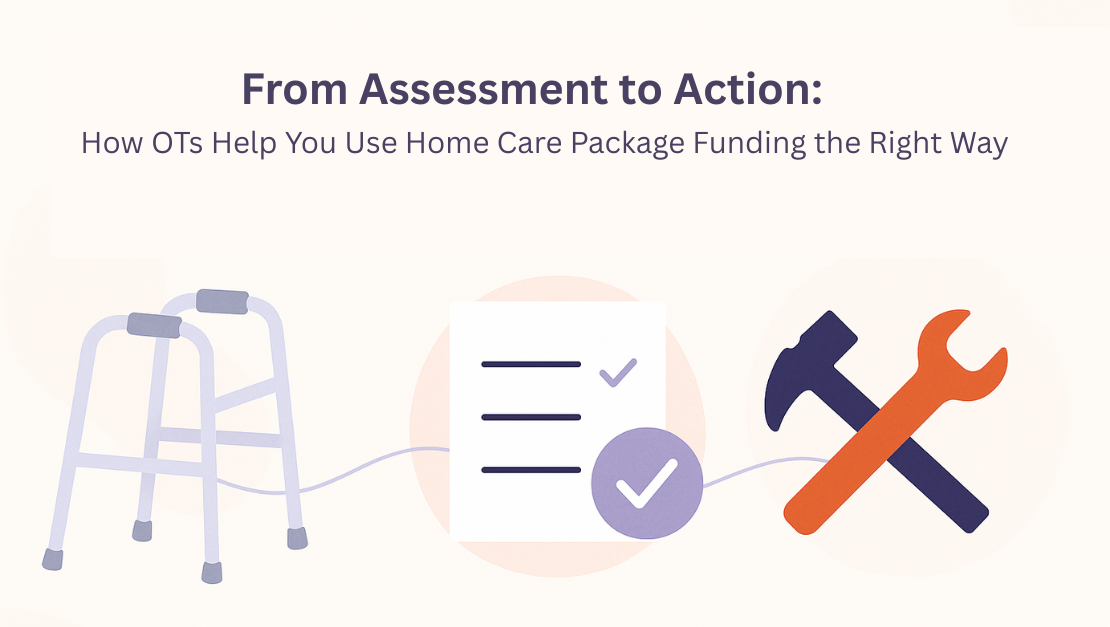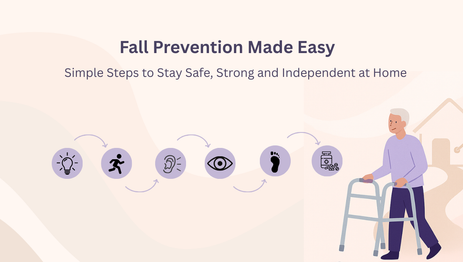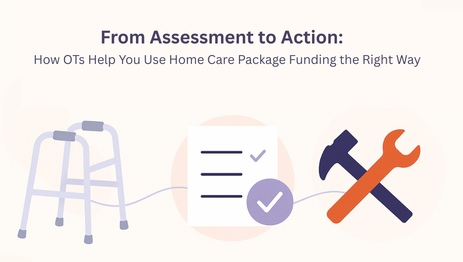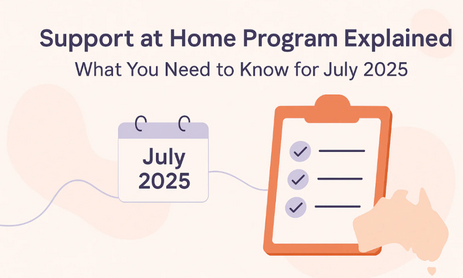
Behind the Scenes: How OTs Turn Care Plans Into Action
Now that you understand what’s included in a Home Care Package, let’s break down how an OT helps make that funding work. Whether it’s a major bathroom modification or finding the right mobility aid, here’s how we guide you—from assessment to installation—with clinical accuracy and funding success.
Step 1: Start with an Allied Health Assessment
A professional assessment by an allied health expert, such as an occupational therapist (OT) or physiotherapist, is the cornerstone of the process. This assessment includes three key components:
Functional Assessment: Evaluates the client’s abilities and limitations in everyday activities.
Home Assessment: Identifies safety concerns or accessibility issues within the home environment.
Product Assessment: Determines the suitability of specific equipment or modifications for the client.
This thorough evaluation ensures that all recommendations are tailored to the client’s unique circumstances and challenges.
Step 2: Observation and Trial — Ensuring the Best Fit
After the initial assessment, the next step is to observe the client interacting with the proposed equipment or within the modified environment. This hands-on approach enables the allied health professional to:
Ensure Suitability: Verify that the equipment or modification effectively meets the client’s needs.
Adjust Recommendations: Make changes if necessary, based on how the client engages with the equipment or environment.
This practical testing phase enhances clinical reasoning and provides peace of mind that the solutions will truly benefit the client.
Step 3: Documentation and Funding Justification
Once the assessment and observation stages are complete, the allied health professional will compile a detailed assessment report. This document plays a critical role in securing funding and approval for the recommended interventions. The report includes:
Evidence-Based Justification: Clear reasoning that aligns the recommendations with HCP guidelines.
Streamlined Approval: A concise outline of the necessity and expected outcomes to support quick and successful funding approval.
Proper documentation is not just a box to check—it’s an essential step to ensure compliance with HCP requirements and unlock the resources needed for safety and independence.
Recap: The Power of the OT Process
By following this structured process, our OT and physio team ensures that:
✅ Equipment is safe and suitable
✅ Funding is secured efficiently
✅ Clients regain confidence in their home environment
Each step—assessment, trial, justification—serves as a critical bridge between your loved one’s needs and a solution that improves their daily life.
🔗 Still confused about what’s included in HCP funding? Start with our foundational guide →
📞 Book an assessment or speak with our team
Let’s take the guesswork out of aging at home.






